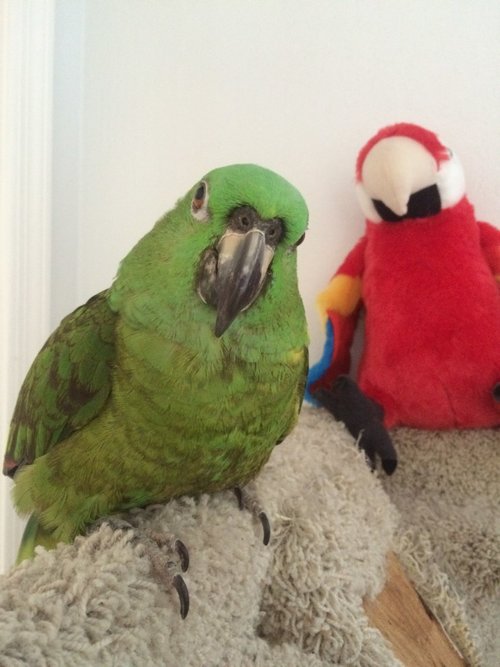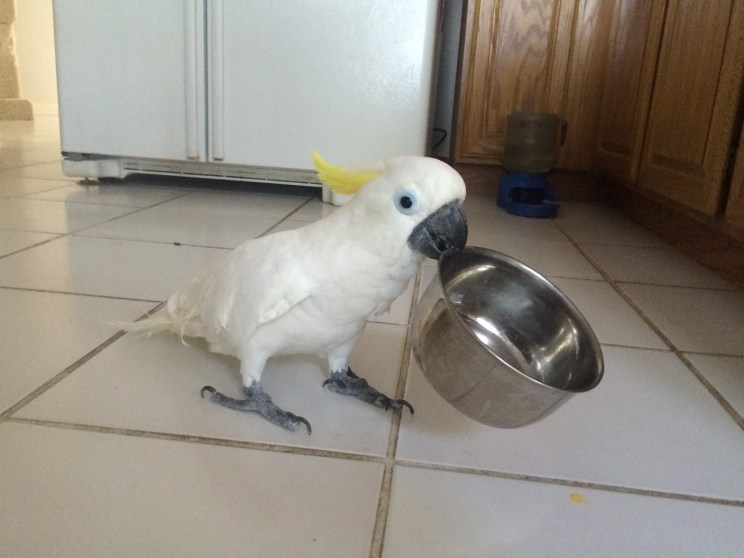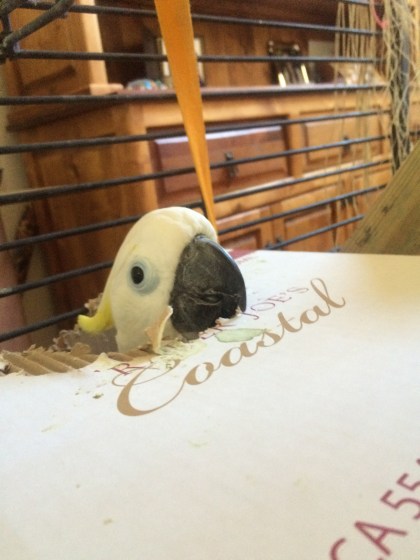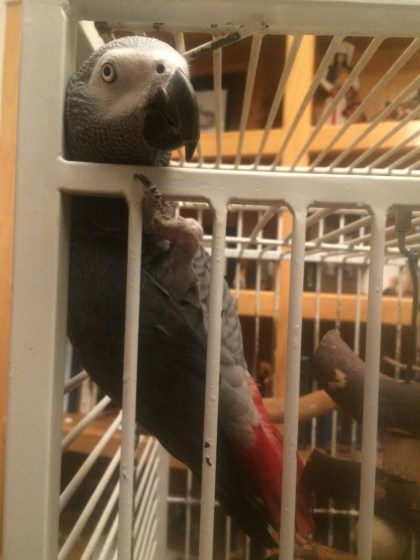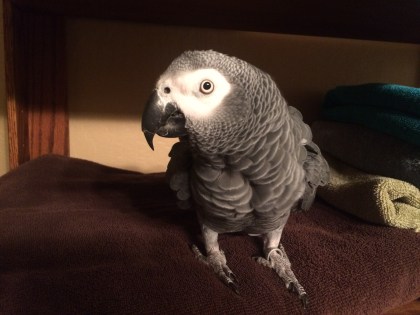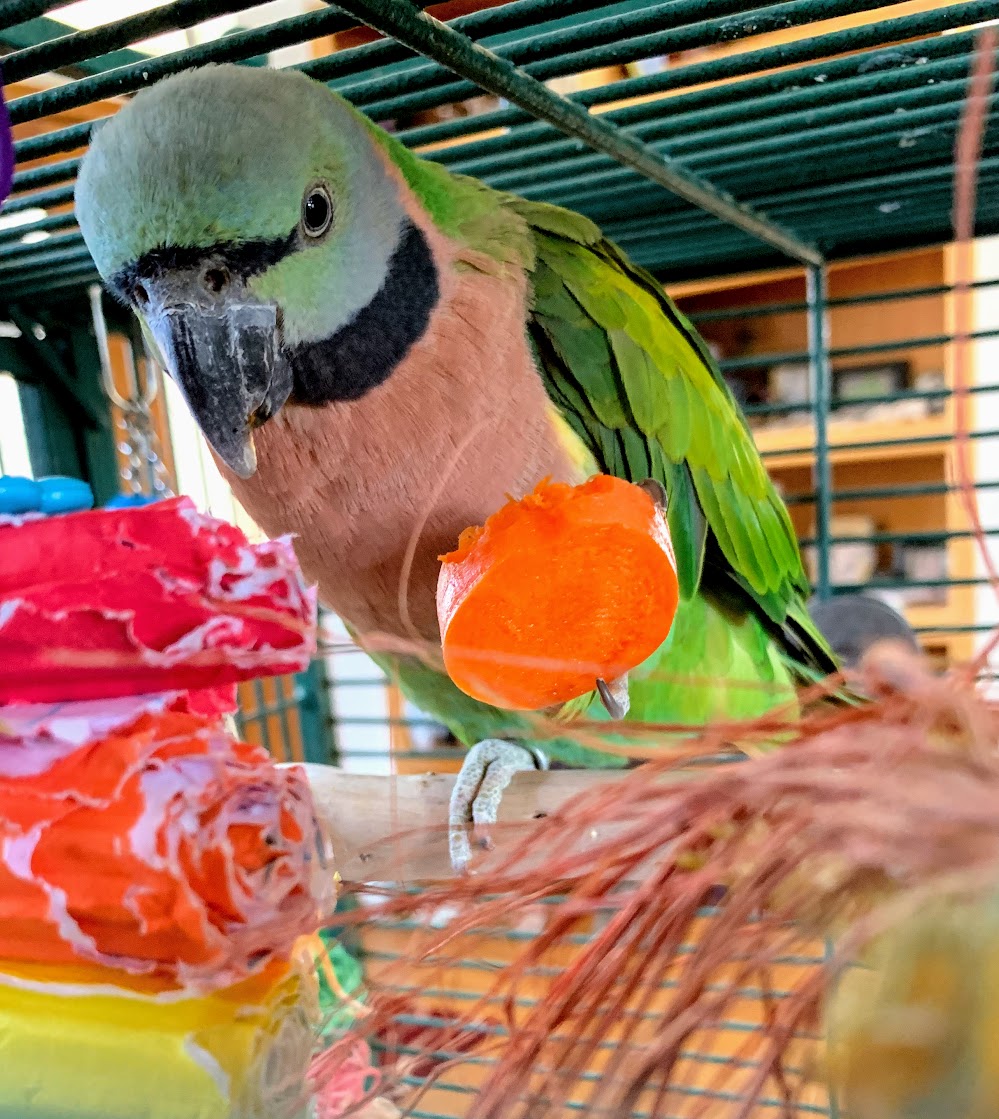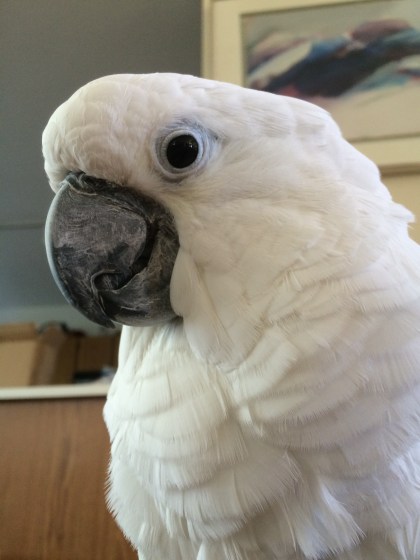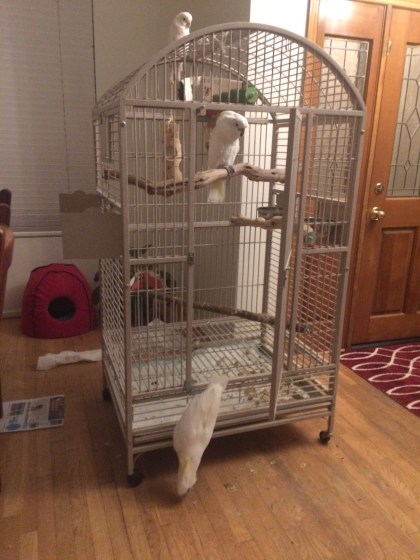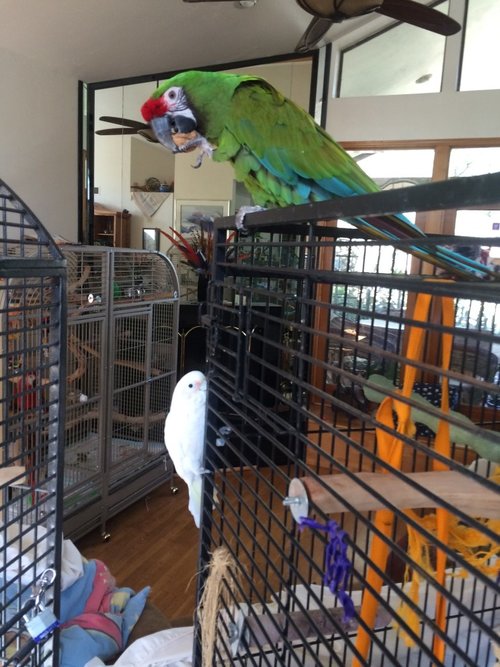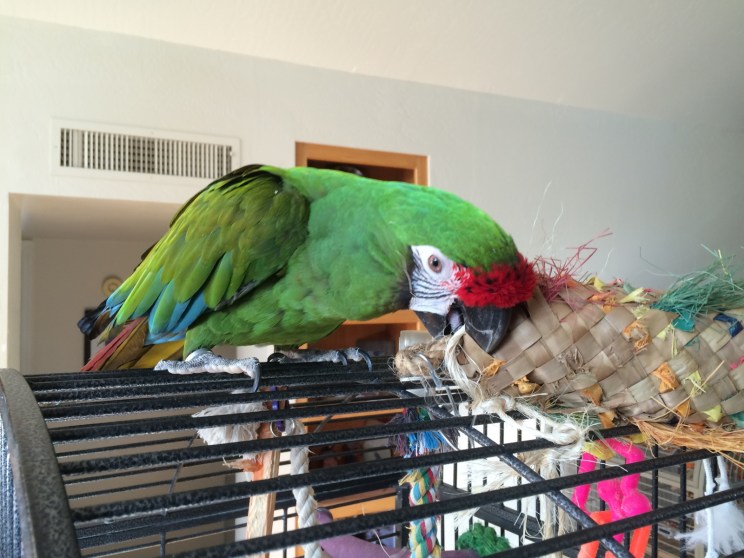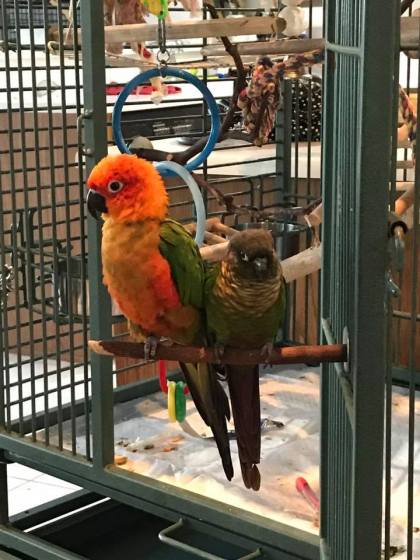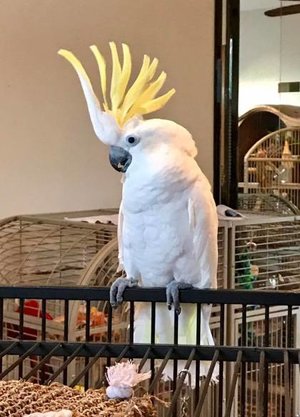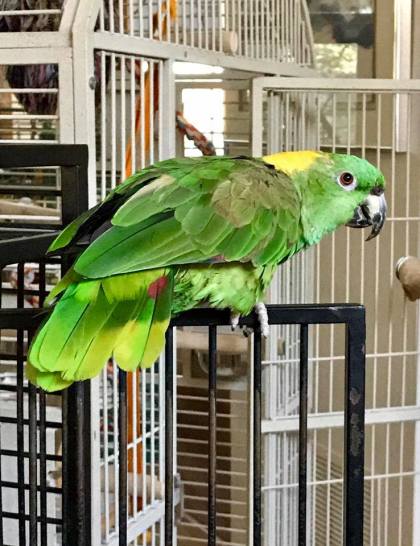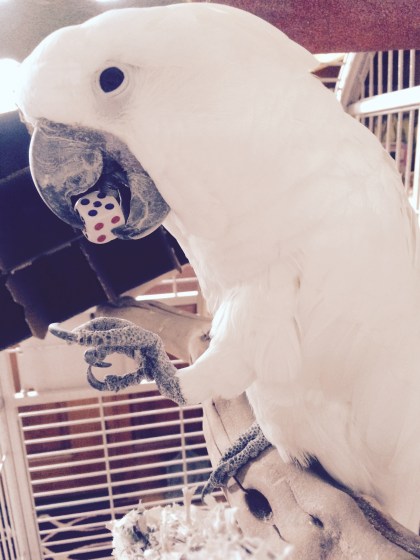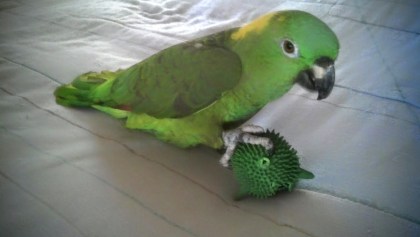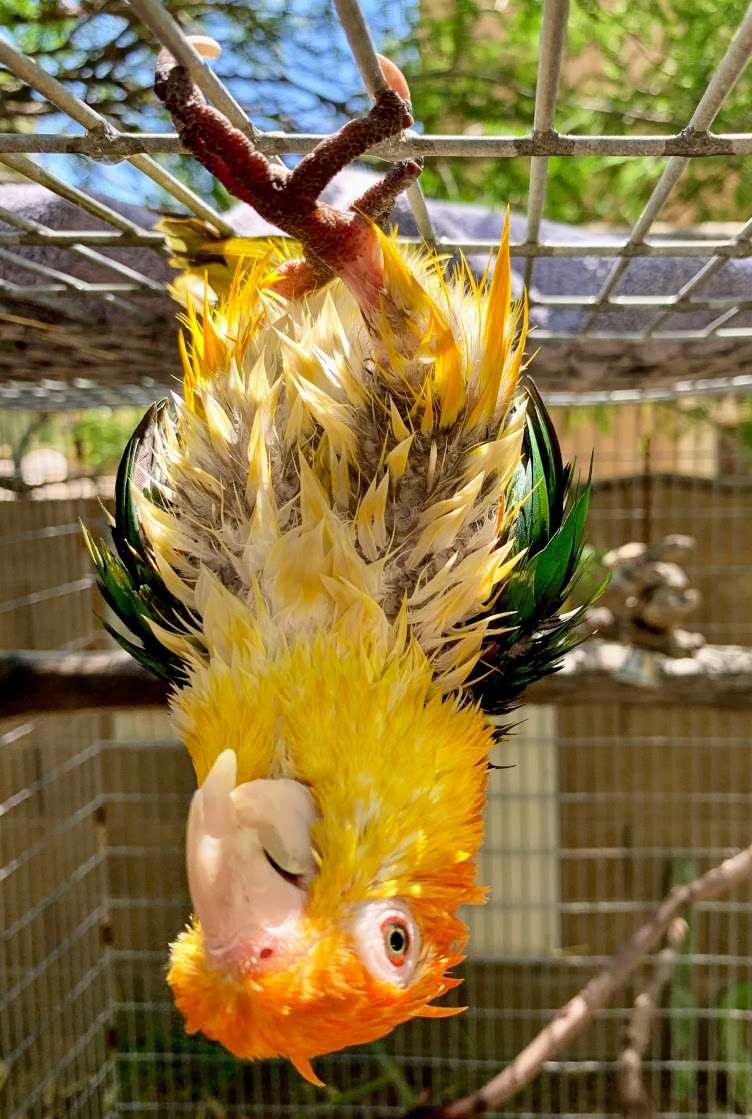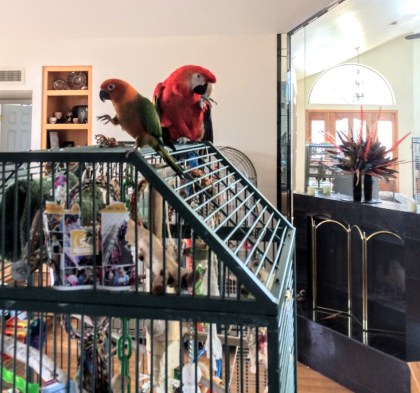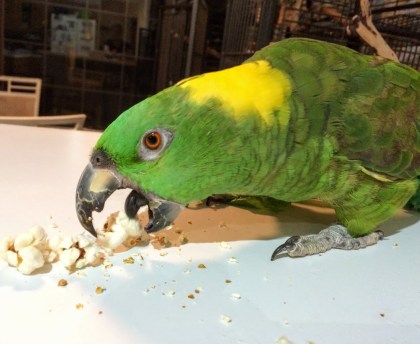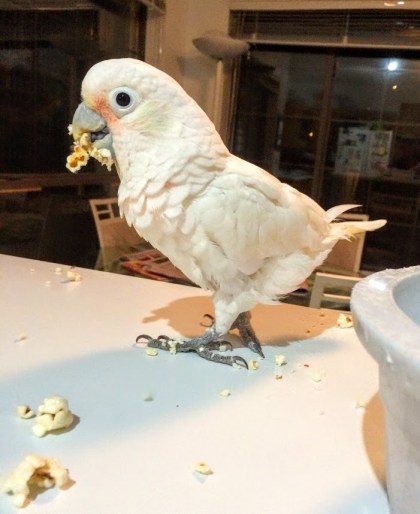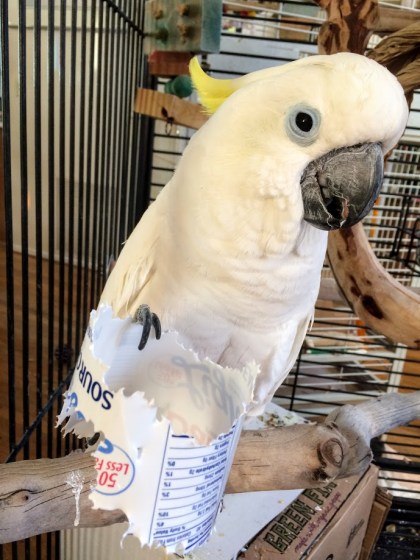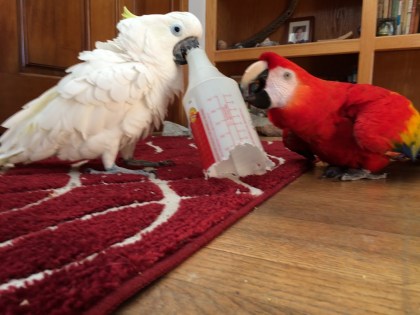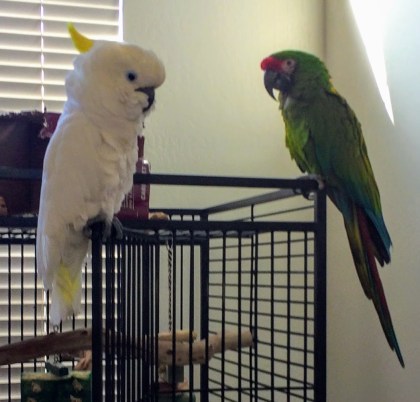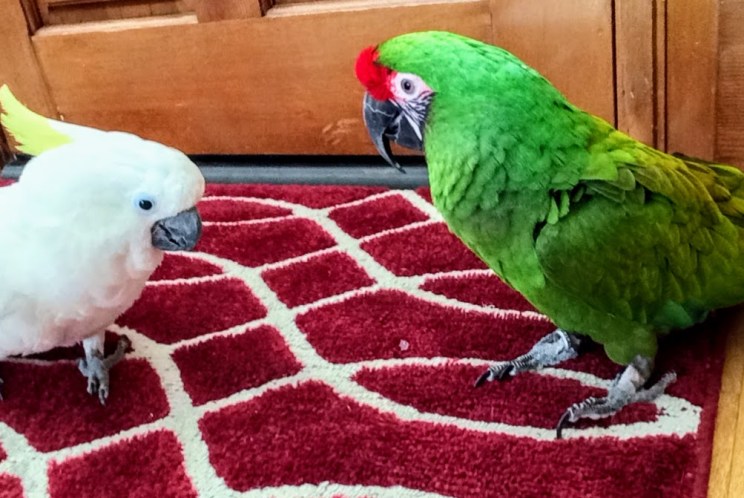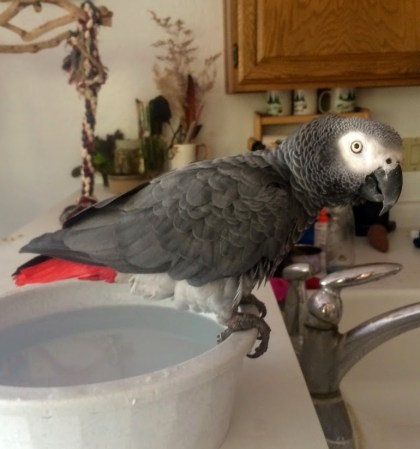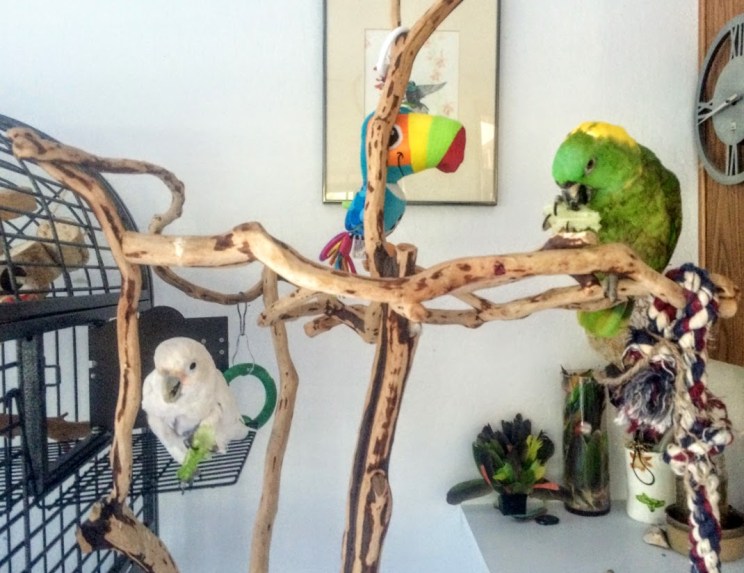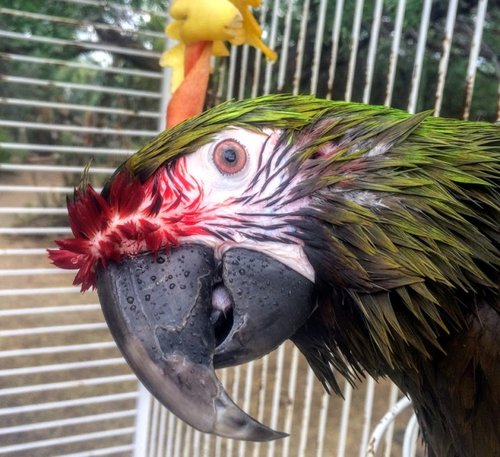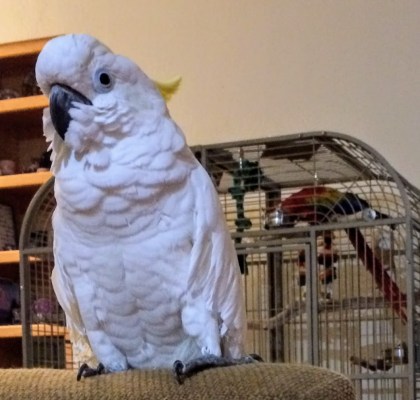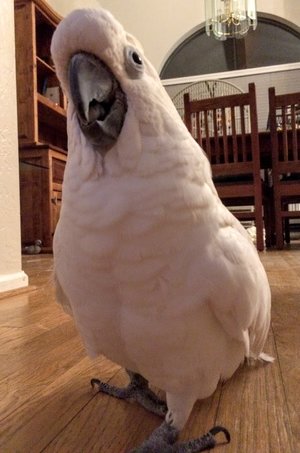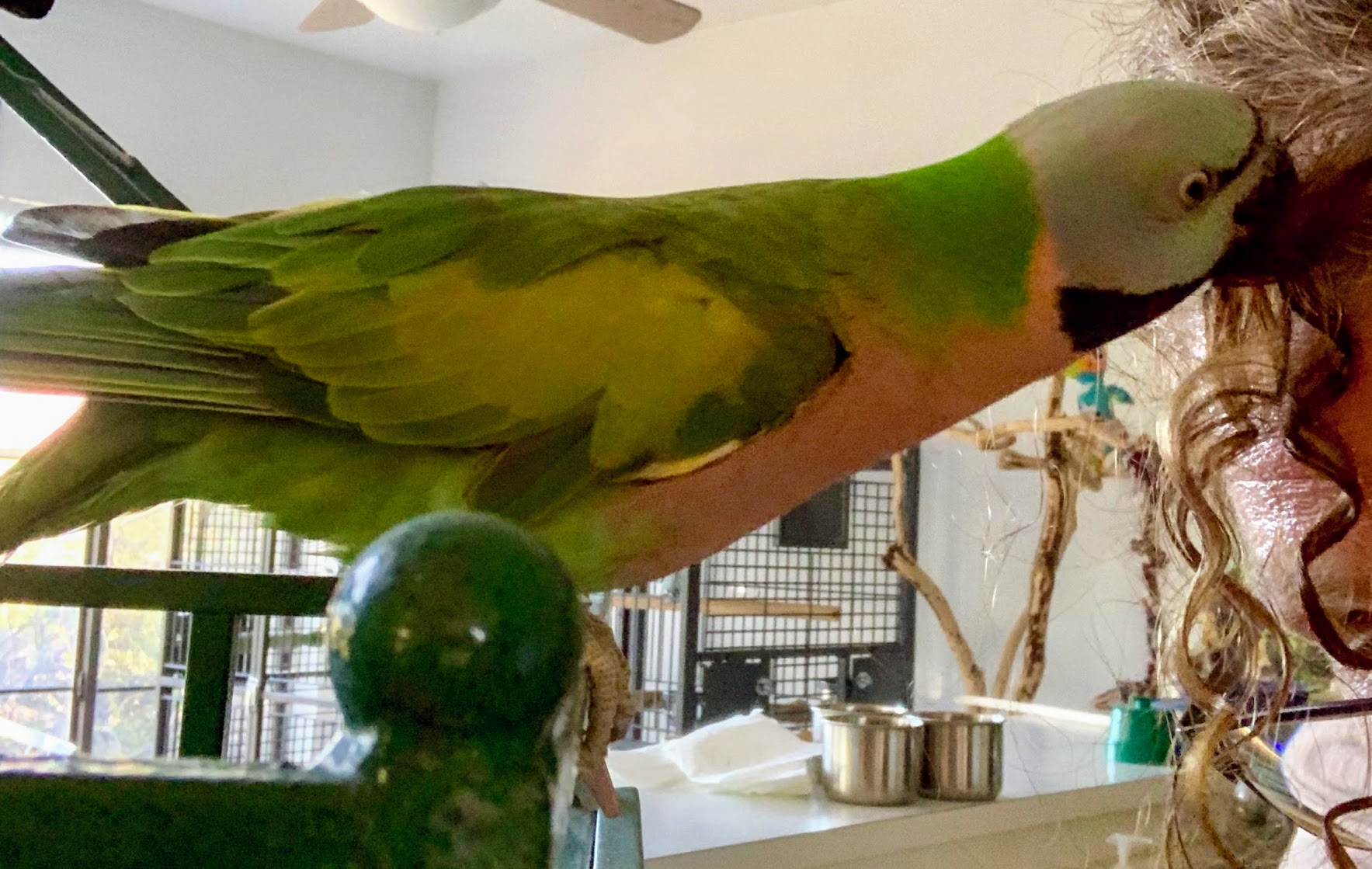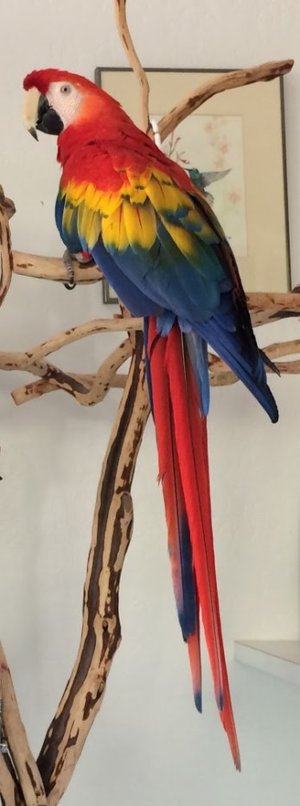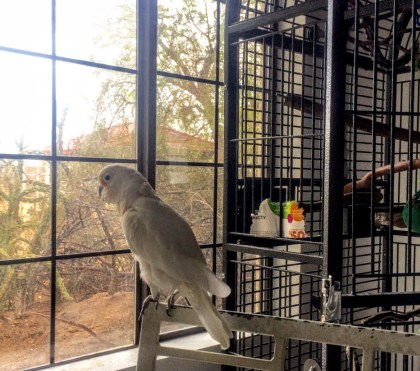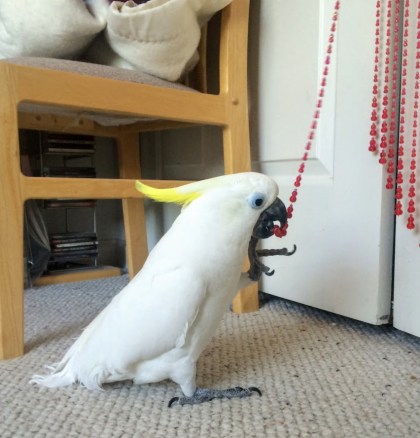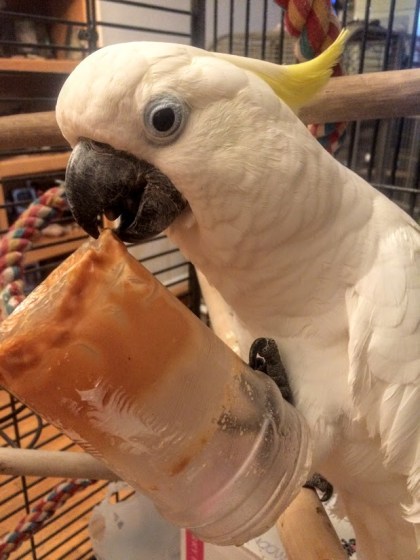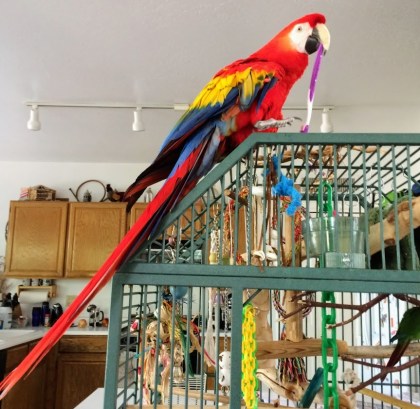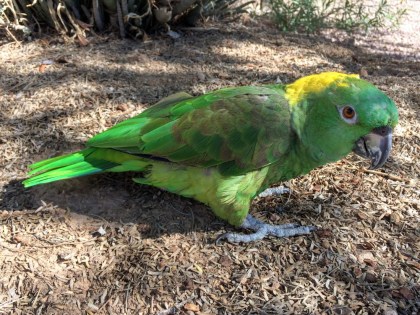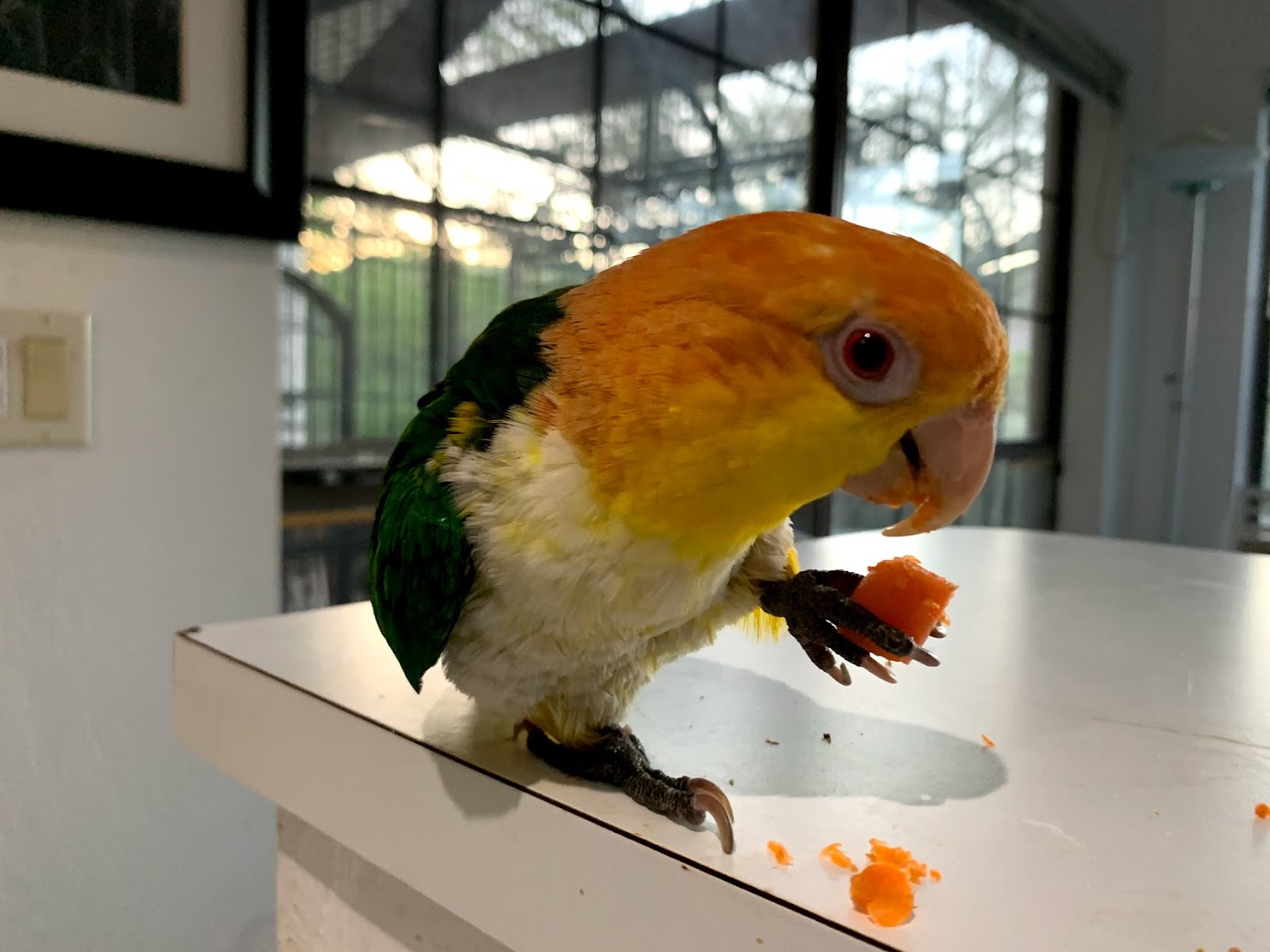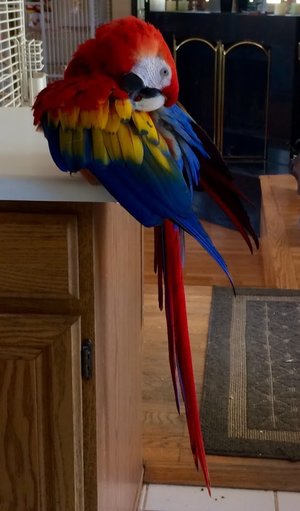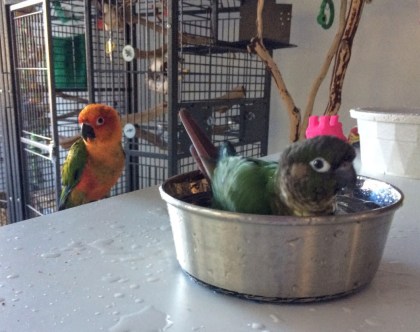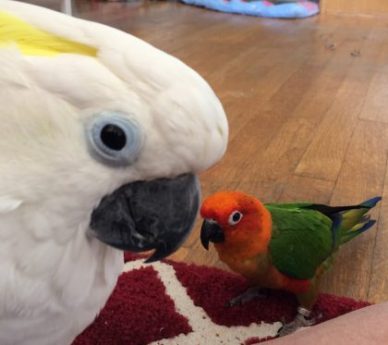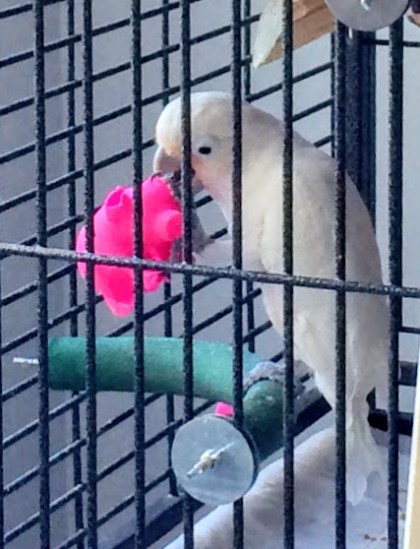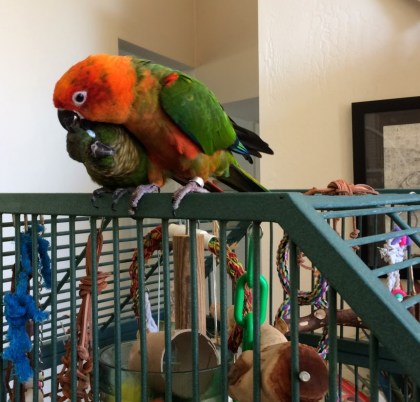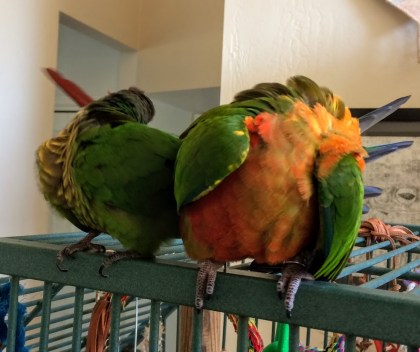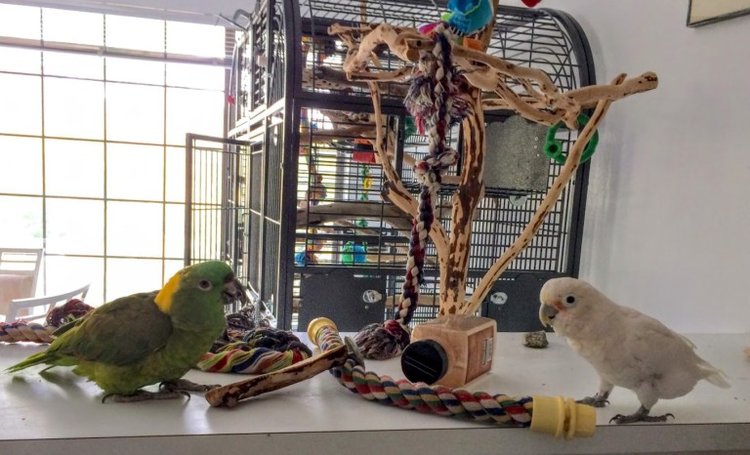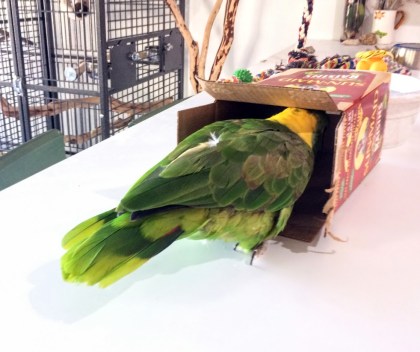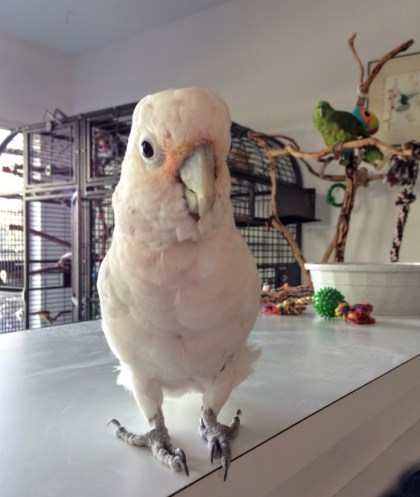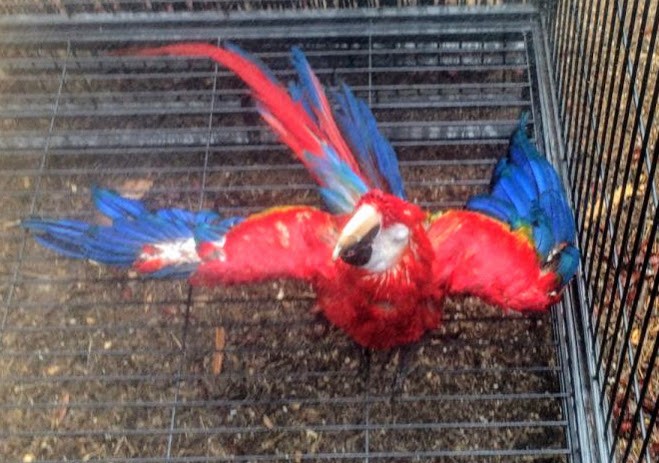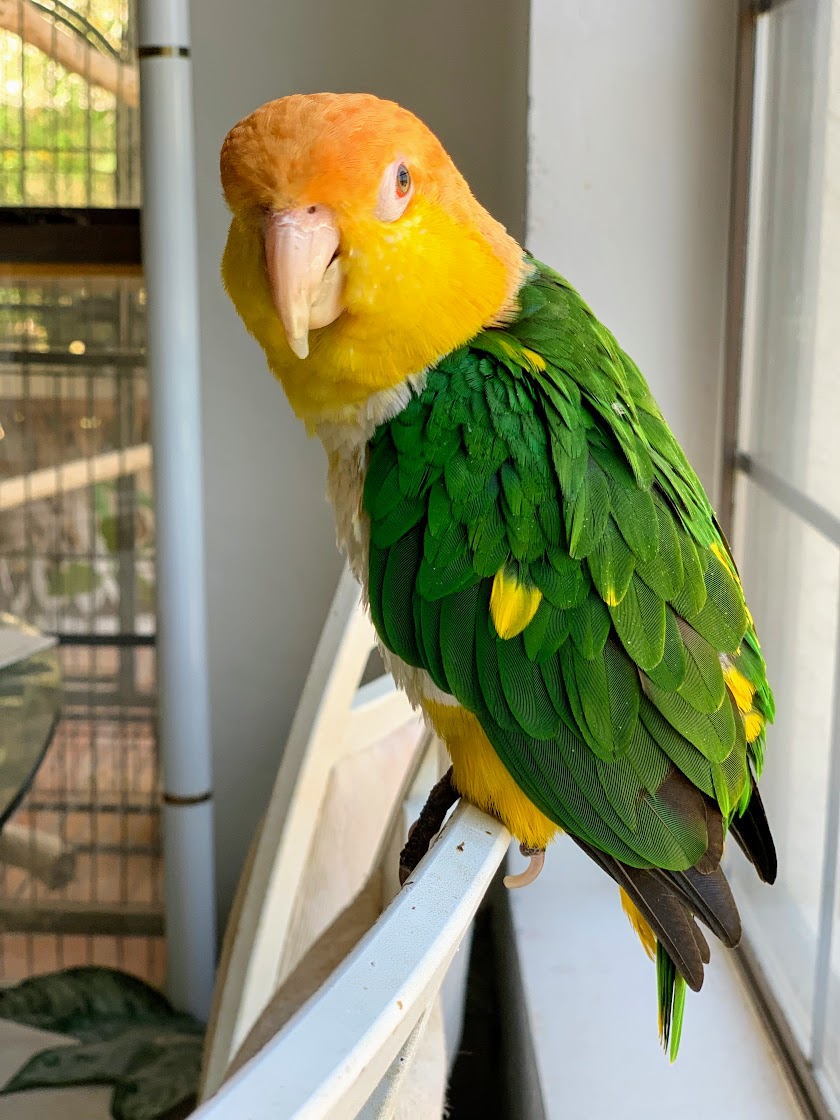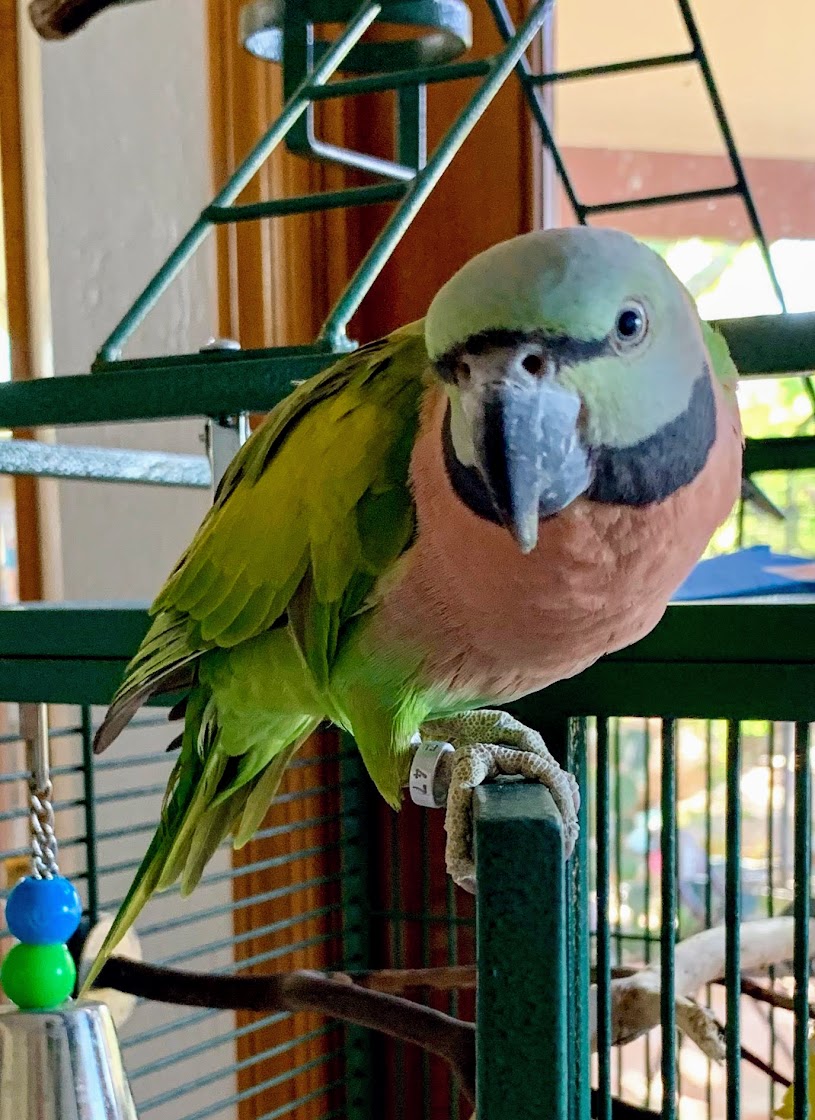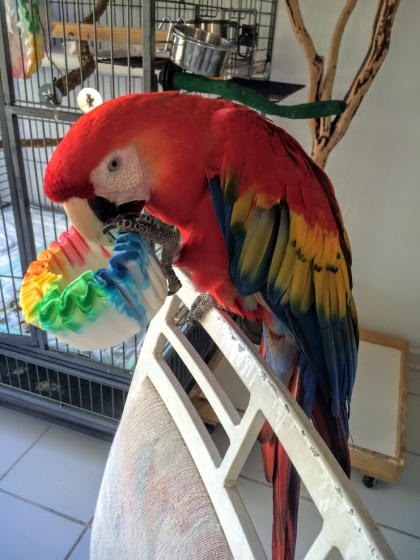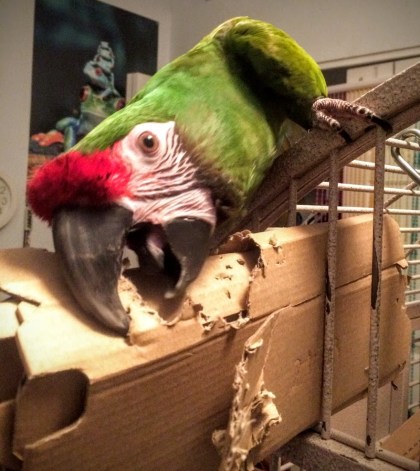The basic desire of every being on Earth is survival and having control over what happens to them. All animals manipulate the world through their behavior. Birds have a fundamentally different awareness than the dogs and cats we live with. Cats and dogs are predators, and so are humans. As a prey species, birds are especially sensitive to their environment. Birds in the wild have evolved into amazing learners who adapt to survive the constant threats and new experiences. Those of us who bring a bird into our home need to be aware of what we are teaching.
Companion birds have not been domesticated. They have evolved to live in the wild, not in our homes. Psittacines naturally make choices to chew, vocalize, protect, and otherwise behave as birds. Their behavior with humans is learned from each individual’s past and present experiences with us. EVERY interaction with your bird builds or erodes the relationship and trust between you and your animal. We must learn to be precise in our actions and to take responsibility for the fact that much of what the bird does is due to our own behavior and decisions.
BE KIND. BE SENSITIVE. BE CLEAR. BE CONSISTENT. BE PATIENT.
Great relationships are a wonderful side-effect of positive reinforcement training:
BIRDS ARE AMAZING!
Birds enjoy learning!
Your bird can learn quickly and easily.
Gain your bird’s trust AND trust your bird.
Your bird can enjoy being out of their cage and WILLINGLY go back into their cage.
No biting.
No fear.
Good behavior.
Step up.
Confidence!
No stress in a towel.
Calm and cooperative at the veterinarian.
Allow you to groom nails.
Wear a harness.
Your bird is smart!
Your bird can can learn many fun and enriching behaviors!
Hope for Feather-Destructive Behavior / Plucking:
Lilly - April 7, 2015
Please go to the ENVIRONMENT! CHOICES! page under ‘My Philosophy’ to see Lilly’s progress from plucking and scared to feathered and confident. For current news on Lil, check out her The Lilly Fan Club Facebook page!!!
Lilly - December 27, 2015
Life out in nature involves foraging for food throughout the day. Constant access to food encourages boredom, waste, and picky eating. Please consult your Avian Veterinarian before deciding what is best for your bird. I feed my birds a high quality pellet twice a day as the foundation of their diet. This assures that each bird is getting a balanced nutritious diet.
A base diet of pellets allows your bird’s favorite foods such as seeds, nuts, fruits, veggies, treats to be used for reinforcing good behavior. A high quality sugar-free (read the label) pelleted diet such as those from Harrison, Roudybush, Lafeber, or Top’s ensures that your bird is getting healthy, balanced, pesticide-free nutrition and not just picking out their favorite foods.
Always introduce new foods into your animal’s diet gradually and with care. Be certain that your bird is eating the pellets (another good reason to feed meals rather than keep full bowls).
Weighing your bird regularly allows you to make sure the bird is maintaining a healthy weight.
Voluntarily standing quietly on a scale is one of the behaviors that can be taught to help make your bird’s veterinary care less stressful for all involved.
Please consult your avian veterinarian with any questions or concerns about your bird’s health and when making changes to your bird’s diet.
Perches for Health and Enrichment in Your Bird’s Cage:
At least 4 perches offering different diameter sizes. Natural wood offers a choice of diameters. Offer choices - perches a bit larger and a little smaller diameter plus at least a couple perches sized well (their toes reaching almost halfway around perch) and flat perches giving their feet a bigger surface.
At least 3 different perch materials. Different kinds of wood, wood with bark, wood without bark, rope perches, different textures, materials - depending on what is safe for your bird. Natural wood perches and rope perches are important especially higher in the cage to offer comfortable choices for sleeping. A dowel perch may be an option for chewing as well as perching. Concrete or sandy perches should have the smooth side up against the foot, the sandy surface on the sides for nail wear (not always effective for nail grooming but offer an option).
At least 2 flat or platform perches. These can be solid as in a piece of wood or a laddered wood or metal “sundeck” shelf attached safely in the corner or to the side of the cage. Offer at least one flat perch or platform up higher in their cage as a choice for hanging out or sleeping. Keep these and all perches clean and dry.
At least 1 action-balancing perch. A swing, boing, bungee, bird climbing net, “orbit”, ladder, rope, etc. that provides physical and mental exercise and enrichment.
+ Privacy. Offer your bird a way to gain some privacy - something such as hanging a side of a cardboard box or a hanging toy by a perch for them to lean against, chew, and/or block their view of the room.
Placement of the furnishings in your bird’s cage should be situated for your individual bird’s safety, comfort, and hygiene:
Arrange the environment in and around your bird’s cage and home to ensure the safety of your bird and all animals and humans during the day and night.
Allow that your bird’s individual perception of safety is integral to their wellbeing. Your bird must feel safe as well as be safe.
Birds in nature are often seen choosing to be higher in the environment where they can observe the world and watch for predators and flee when they feel the need.
Birds in our homes may naturally feel more confident with their cage higher - certainly up off the floor.
Many birds prefer to sleep safely on perches placed near the top of their cage.
Be sure perch placement offers sufficient clearance for your individual bird’s posture - especially room for their tail, head when using each perch.
Keep all perches and areas clean and dry. Consider gravity and the path of your bird’s droppings.
Professional Member:
~ International Association of Avian Trainers and Educators
~ Animal Behavior Management Alliance
~ Association of Animal Behavior Professionals
~ International Association of Animal Behavior Consultants
Arie's (aka Rambo) story
“We have a scarlet macaw, all he does is attack us and take hunks out of us when he gets us. He was loving when we first got him, now can’t do anything with him. We want to give him away but are afraid he’ll kill someone or mess them up real bad! That’s how mean he is! He says a lot of stuff and cusses too. His last attack he almost got my arm artery. We have lots of children and he has to go! We have had him since he was 5 months and now he’s about 9 1/2 years old now. Would you like to test your training abilities to the max?!! You can have him. Or please can you give us some ideas what to do with him? He has to go, we can’t afford training or anything, that’s why we just want to give him away to someone who maybe can handle him. Please help us." — Rambo’s owner contacted me in April 2013
Thus far, I had always maintained that Le’a, who has been my partner since November 13, 1978, deserves only-bird status in our home. The plea to take Rambo was one of those just the right timing moments. Being aware to keep Le’a satiated with attention, this adoption/rescue has worked out extremely well. In fact, at this very moment as I sit at my computer typing, I have a contented bird on either shoulder. :)
Rambo — aka Arie – is observably a very bold and gregarious bird. Although Arie is not without challenges, he is an incredible individual who has definitely found his forever home with us! :)
I had the privilege of working with Slater for a week at Natural Encounters Professional Workshop. Slater is a Craven (hybrid crow/raven). Quick, in every sense of the word, and incredibly determined and persistent and clever… Slater is a genius! :)
Develop trust.
FUNTIME BIRDY for roller skates and other outstanding bird supplies. A great place to find enrichment items for your bird and you! http://www.funtimebirdy.com.












